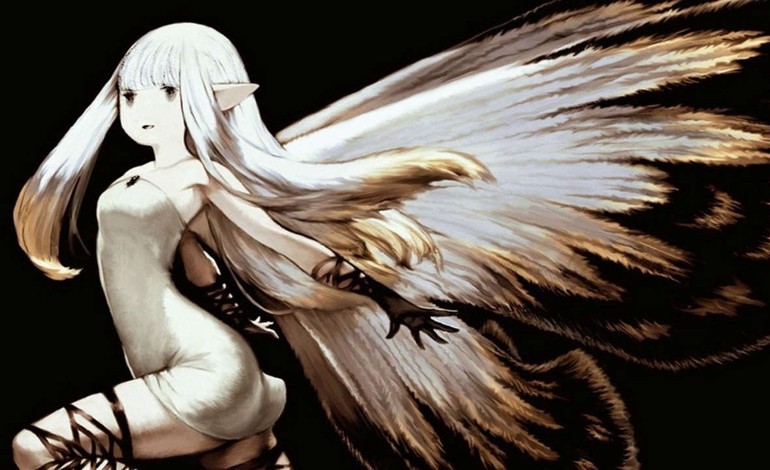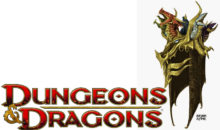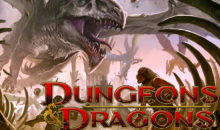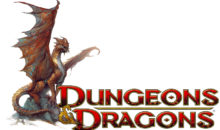Review: Bravely Default
These days, the term “traditional RPG” usually brings with it certain connotations, not all of them positive. As fondly as we may remember playing traditional RPGs in the past (with titles often ending in “Quest” or “Fantasy”), many of the concepts that defined them may seem a bit dated these days. Level grinding, turn-based fighting, esoteric inventory systems, and – perhaps above all else – random encounters are often seen as old-fashioned elements that many modern RPGs seem to avoid as much as possible.
Enter Bravely Default. Published by Square Enix and a spiritual successor to Final Fantasy: 4 Heroes of Light, Bravely Default is a traditional RPG in pretty much every sense of the word. However, by constantly rethinking and re-imagining every convention of the genre, Bravely Default never feels dated or derivative, but rather offers a fresh take that allows players to experience a classic genre through modern eyes.
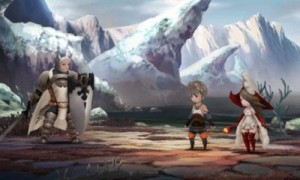 Throughout the game, players control a party of four as they seek to restore balance to the world after a sudden chasm erupts, destroying the peaceful village of Norende. The four characters are Tiz Arrior, the village’s sole survivor; Agnès Oblige, a priestess who worships the Crystal of Wind; Edea Lee, a young soldier from an invading army who turns against her people when she witnesses the atrocities they commit; and Ringabel, an amnesiac with no knowledge of his former life, save a diary that seems to predict the future. Together they embark on an adventure that spans continents and pits them against a plethora of enemies.
Throughout the game, players control a party of four as they seek to restore balance to the world after a sudden chasm erupts, destroying the peaceful village of Norende. The four characters are Tiz Arrior, the village’s sole survivor; Agnès Oblige, a priestess who worships the Crystal of Wind; Edea Lee, a young soldier from an invading army who turns against her people when she witnesses the atrocities they commit; and Ringabel, an amnesiac with no knowledge of his former life, save a diary that seems to predict the future. Together they embark on an adventure that spans continents and pits them against a plethora of enemies.
Familiar to anyone who played January’s demo, Bravely Default‘s combat system is perhaps the most notable example of the game offering a new take on an old staple. In addition to the regular turn-based commands one would normally associate with the genre – players can attack, cast spells, use items, etc. – characters have the additional option to either Brave or Default. By Defaulting, characters go into a defensive stance and save their action until their next turn. By storing up actions (known as Brave Points), players can choose to Brave, unleashing multiple – or even extra powerful – attacks in one turn and dealing potential lethal damage. However, you need to be careful. Spend too many Brave Points without saving enough, and you can find yourself unable to attack or defend for several turns. If the system sounds complicated, don’t worry – it becomes second nature after only a handful of battles and completely changes the way you look at turn based combat, especially when fighting the diverse range of bosses.
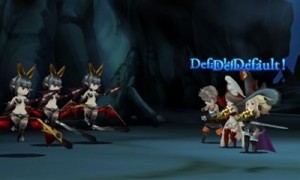
Beating most bosses for the first time grants you their “asterisk”, which in turn allows your characters to take on new jobs. Jobs are not unlike class systems from similar RPGs. They range from White Mages and Knights to Performers, Pirates, and Vampires. They greatly affect how battles are fought, as each job uses its own strategy. White Mages, for example, are healers. Pirates are all about doing massive damage to single targets. Dark Knights, meanwhile, sacrifice their own health for added bonuses, while Merchants are all about manipulating the outcome of battles by either spending or earning more gold. Jobs can be switched at any time between battles, and level up separately from the characters, which allows players to constantly mix-and-match different setups until they find their perfect combo. With 24 jobs to ultimately choose from, there’s lots of room to experiment.
Bravely Default offers tweaks – both large and small – to other conventional areas as well. Random encounters are admittedly still in the game, but players can adjust the frequency of them occurring, even turning them off completely (at the expense of losing a valuable opportunity to level your characters). StreetPass, a feature of the 3DS that has been mostly overlooked in past games, sees its best implementation since perhaps Fire Emblem: Awakening. In addition to a minigame that sees you cultivate StreetPass players to populate your growing village (again, see our coverage of the demo for more info), Bravely Default allows you to share data with other players by sending and receiving attacks, which can then be used in battle. Have a friend who’s several levels ahead of you? StreetPass with them, and you can use them to help see you through a particularly difficult battle.
No matter how appreciated or innovative these features are, they wouldn’t amount to much if the game itself wasn’t very good. Thankfully, Bravely Default is a top-notch game with wonderful production values through and through. The game is beautiful to look at – every town looks like a living watercolour painting like a storybook come to life. The musical score, composed by Revo (of Attack on Titan fame), is equally impressive. Voice acting is good overall but perhaps a bit more inconsistent, with some characters more convincing than others. That being said, considering that the audio can be switched to the original Japanese, this is hardly a dealbreaker.
 Finally, the game’s story, while certainly traditional and drawing on many conventions of the traditional RPG, still offers a surprising amount of twists, turns, and intrigue. While I don’t want to spoil any of the major plot points in the game, suffice it to say that the game will constantly have you re-evaluating the story, the world, and the motivations of each character.
Finally, the game’s story, while certainly traditional and drawing on many conventions of the traditional RPG, still offers a surprising amount of twists, turns, and intrigue. While I don’t want to spoil any of the major plot points in the game, suffice it to say that the game will constantly have you re-evaluating the story, the world, and the motivations of each character.
That being said, Bravely Default is not perfect. About halfway through the game’s lengthy campaign, the narrative slows to a crawl, as players are forced to repeat much of the first half, fighting the same bosses over and over again ad nauseum. This is hardly a novel concept – many video games see you repeating certain stages and boss fights. However, Bravely Default forces this repetition to an unprecedented degree. By my count, I had to fight the same 28 bosses six times each in total (though, to be fair, only four of those 28 bosses are mandatory battles each time). While the reasoning behind the repeated fights is linked to the story, the repetition feels unnecessarily tedious, and grinds the gameplay to a halt, seriously sapping the amusement of playing this game for several chapters. The pace does pick up again for the final stretch of the story, but not quite enough to clear the bitter taste that those middle chapters left in my mouth.
That one, admittedly large drawback aside, Bravely Default is still a fantastic game for both RPG enthusiasts and those who may have grown a bit tired with the formula. With the sequel Bravely Second already announced in Japan, hopefully this might be a sign that the genre isn’t as stale as some would believe.
Don't let its cute art style fool you. Bravely Default is a hardcore package that plays with many conventions of traditional RPGs yet never feels dated. Be prepared to sink over 100 hours into the campaign, but some of it can get pretty tedious about halfway through.

